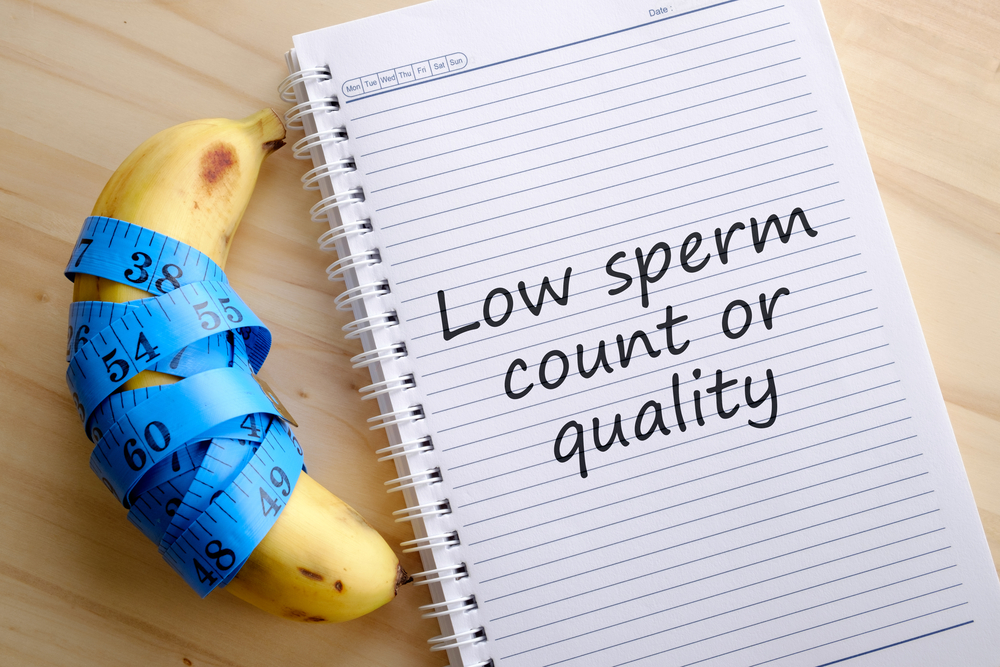When you’re trying to conceive, there are so many things that you need to be mindful of. Your spermatozoa are actually very sensitive, and they’re vulnerable to all sorts of damages. Even though you technically produce millions of sperm cells each day, it takes about three months for your little swimmers to mature.
If you’re not taking good care of your sperm health, your sperm could start dying off even before they reach maturity and become viable. And you actually need at least 15 million of sperm for every milliliter of your semen in order for your count to be considered normal. Learn about five common factors that can cause your sperm count to go down.
#1 High Testicular Temperatures
You literally don’t want your testicles to overheat. Your spermatozoa are very sensitive to heat stress. And if you’re constantly exposed to high temperatures such as if you work near ovens all day, there’s a good chance that your testicular temperature will also increase.
There’s a good reason why you have your testicles inside your scrotum. The scrotal sac is supposed to keep your testicles cool and safe. If you think that a body temperature of 98˚ Fahrenheit is alright, that’s actually only good for the rest of your body, but not for your sperm.
At that temperature, your sperm will get fried, and your testicles may even stop producing altogether, which means you won’t have any supply of little swimmers for the next three months or so.
In short, avoid hot tubs, saunas, tight clothes that don’t let your testicles breath, and other high-temperature situations. By the way, extremely high fevers can also cause heat stress to your sperm.
#2 Varicoceles

When you’re seeing an enlarged vein in one or both of your testicles and it looks very much like a varicose vein, you may want to have your doctor look at it. That’s called a varicocele, and it’s actually one of the most common factors that cause subnormal fertility in men.
Unfortunately, varicoceles don’t go away on their own. If that’s what’s making your sperm count low, your doctor may need to surgically treat your varicocele. The thing about varicoceles is that they cause your scrotal temperature to go up, thus causing heat stress to your sperm.
Plus, varicoceles have also been found to greatly contribute to oxidative stress in the testicles. Oxidative stress happens when the actions of free radicals and reactive oxygen species (ROS) are higher than your antioxidant capacity.
#3 High Oxidative Stress Levels
Oxidative stress is also a significant factor in male infertility because of the damage that they cause to the structural and functional integrity of your sperm. Oxidative stress has been shown to cause damage to the DNA material contained within the sperm, and it can also cause poor sperm motility and impair your sperm’s ability to fuse with the egg cell.
Causes of sperm oxidative stress include high scrotal temperature and chronic prostatitis. If you’re suffering from inflammation or an infection in any of the organs in your genital area like your epididymis, testis, or seminal vesicles, it can also cause high oxidative stress levels.
#4 Tobacco Consumption
Smoking is a known contributor to high oxidative stress levels. Studies have shown that for men who smoke, their levels of reactive oxygen species can be as high as twice that of non-smokers.
Smoking has also been linked to a decline in sperm count, an increase in the number of abnormally shaped sperm cells, and poor sperm motility. Even the smoke coming from cigarettes can cause oxidative DNA damage to your spermatozoa.
This means that even if you don’t smoke, but you’re constantly around smokers, your sperm health will suffer too. It’s also important to remember that it’s not just tobacco consumption that can harm your sperm health. Alcohol and recreational drug use can also contribute to low sperm count and poor sperm quality.
#5 Obesity

If you’re struggling with your weight, you may want to get serious about going on a diet and working out regularly. The more excess weight you have around your middle, the higher your estrogen levels will increase.
And you don’t want that because high estrogen levels can also reduce your sperm count and impair your fertility, not to mention the fact that it can lead to sexual dysfunction. Aside from raising your female hormone levels, obesity can also cause a significant decrease in your testicular function, which may also result in low levels of testosterone.
Naturally Boost Your Fertility
If you need a boost in your sperm production, there are several popular herb-based remedies that have been scientifically proven to help raise sperm count, as well as improve sperm motility, reduce the number of abnormally shaped sperm, and provide added antioxidant protection for your sperm.
Tongkat Ali, Ashwagandha, and Tribulus terrestris have been tested on men who were suffering from idiopathic infertility, and the results were excellent. One of the most important reasons why these three herbs are beneficial for infertile men is that they contain high concentrations of antioxidant compounds that help protect your sperm.
In addition, they also help to raise your testosterone levels, which is important for the development and maturation of your spermatozoa since they need testosterone for their nourishment.
But what’s really amazing about Tribulus terrestris, Tongkat Ali, and Ashwagandha is that they don’t just boost your fertility by improving your sperm count, motility, and morphology, but they also help to enhance your sexual function.
Tribulus terrestris, for instance, is widely recognized as a natural treatment for impotence. Plus, it also has aphrodisiac properties, which means you’ll also enjoy a boost in your libido.
And if you’ve been under a lot of stress lately, Tongkat Ali and Ashwagandha can help you get back in the mood for sex by lowering your stress levels and increasing your sex drive. Of course, these two are also known as potent erection boosters.
Ashwagandha, in particular, has been used in Ayurvedic medicine for a long time as a remedy for male infertility, impotence, low libido, and poor sexual stamina. With its energy-boosting properties, Ashwagandha can help you last longer in between the sheets.







